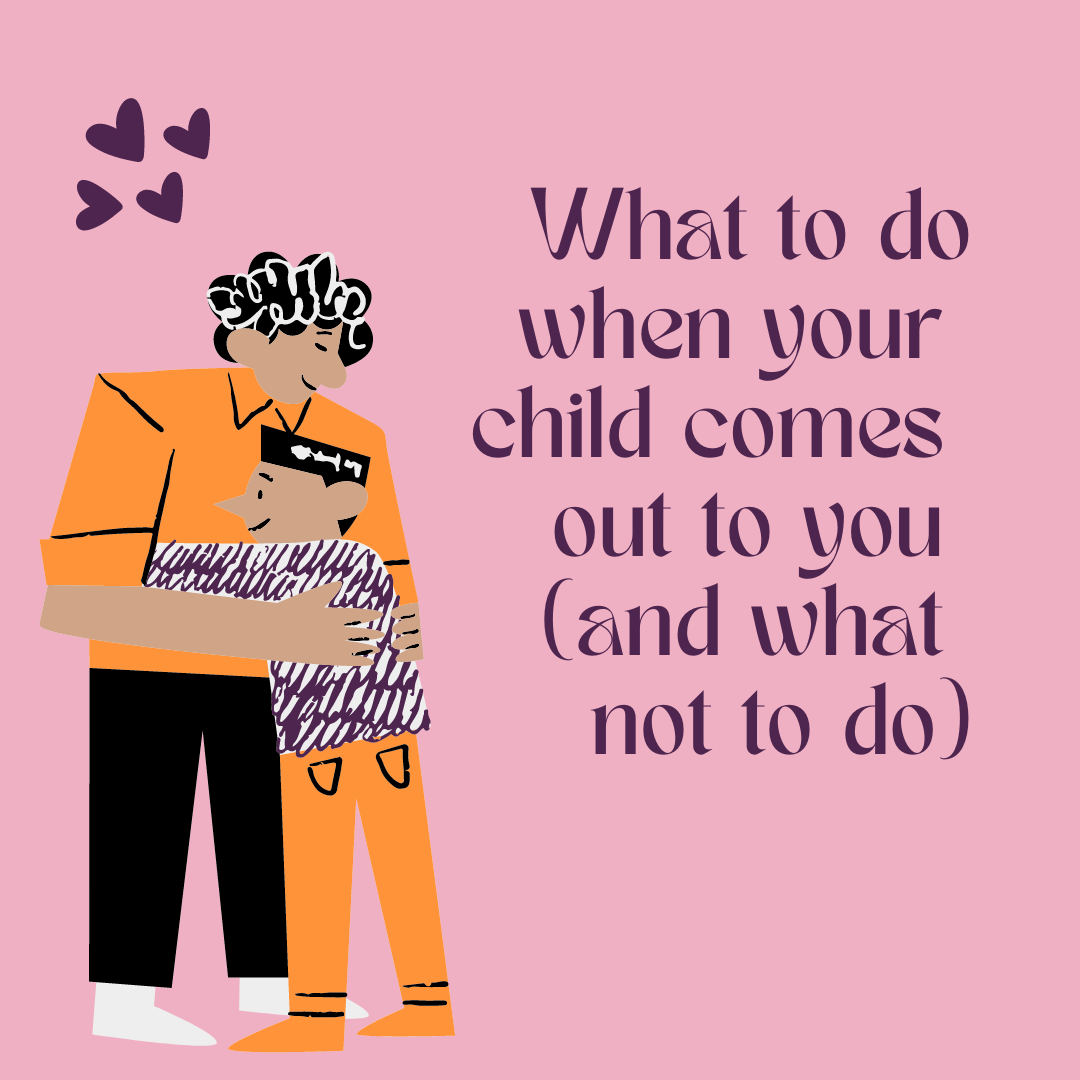
What to Do When Your Child Comes Out to You (and What Not to Do)
Thankfully, coming out today doesn’t bear as many challenges as it used to–even just a decade ago. But that doesn’t mean coming out is easy. Queer youth face many challenges when it comes to coming out. Including:
- Homelessness
- Bullying
- Fear of disappointing people or letting them down
- Acceptance from peers
- Acceptance from friends
- Acceptance from family
- Acceptance from community
- Acceptance from society
- Coming to terms with a shift of perception within self
- Bearing the weight of changing others’ perception of them
When your child comes out to you, it can be difficult to know how to respond. What’s important to remember is that when it happens, they are choosing to trust you with this very personal information. Think of it as your child letting you in rather than your child coming out.
Coming out to parents is also a moment most queer people will remember for the rest of their lives. It’s a snapshot moment that sticks with them and can shape the trajectory of their self-worth for years to come. What a parent says to their child in this pivotal time teaches them how to embrace or reject who they are. Not to mention, a supportive home reduces the chance of suicide attempts (The Trevor Project).
It’s a lot of pressure. That’s why I’m here to help you out. I’m not a parent. (Unless cat parent counts, though I don’t think she and I will have any coming-out heart-to-hearts.) My credentials are: I am a non-binary lesbian who has come out to many. Plus, I’m friends with lots of other LGBTQs who have plenty of coming-outs of their own.
What to do when you suspect your child is LGBTQ+
If you suspect your child is somewhere on the queer spectrum, there are ways to prepare for a “coming out.” Essentially, you want to make your kid feel like queer identities are valid and respected in your home. (Pro tip: These are really great practices even if you have no reason to suspect your kid is queer. It teaches your kids to respect queer identities regardless of whether or not someone in the family is queer.)
Use media to casually show support for LGBTQ+ people
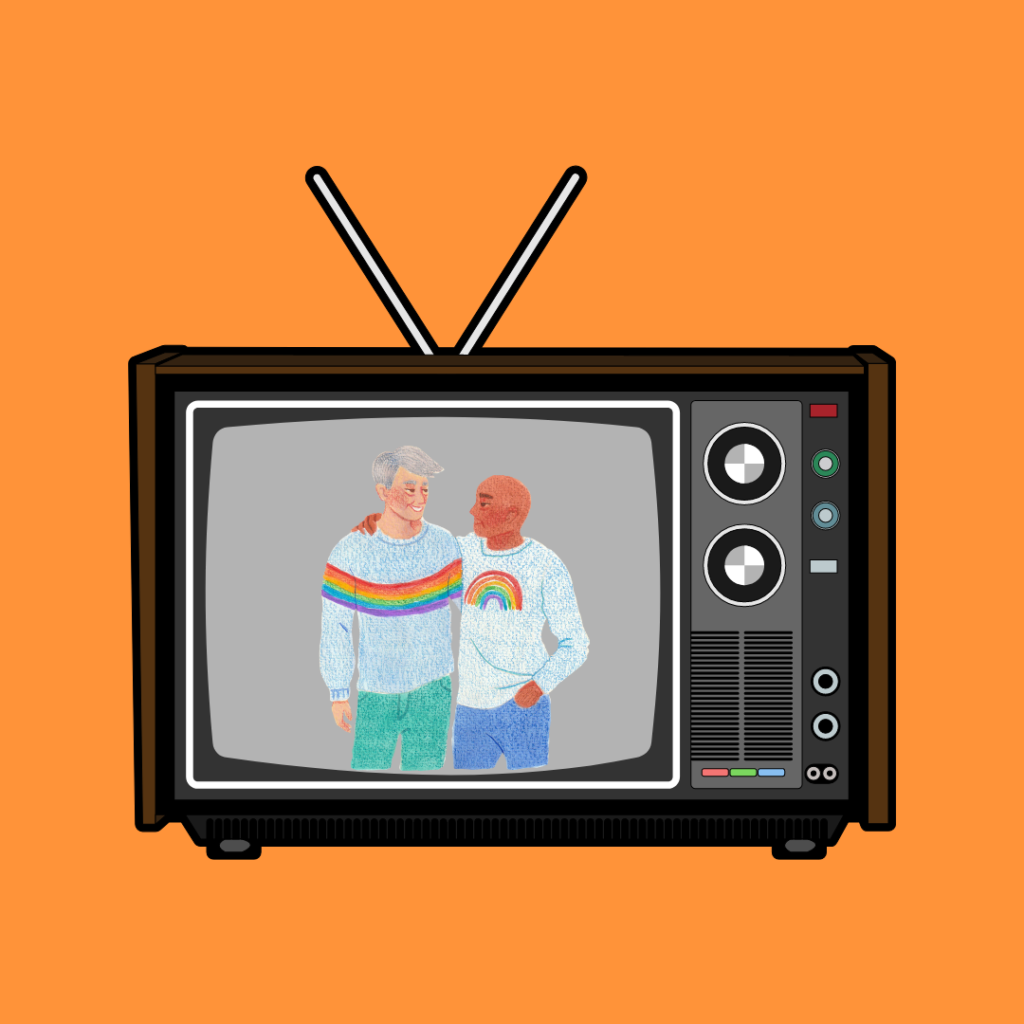
Entertainment media is a great way to let your support for LGBTQ+ people to stay casual. Now that there are many TV shows and films with queer characters, it provides a great opportunity to lay some groundwork in the home.
If your family spends time watching TV or movies together, suggest something with LGBTQ characters every so often. Just watching stories about queer people can start dialogues. Plus, you get an idea of what kinds of challenges LGBTQ+ people face in the world today.
If you don’t really have this screen time together, choose this kind of media for yourself. Your kid might still notice what you’re spending your time watching and what kind of stories you’re invested in. Plus, learning about the challenges your child might be facing one day by watching fictional queer characters is a really easy way to start educating yourself on queer issues.
Create a queer-friendly home
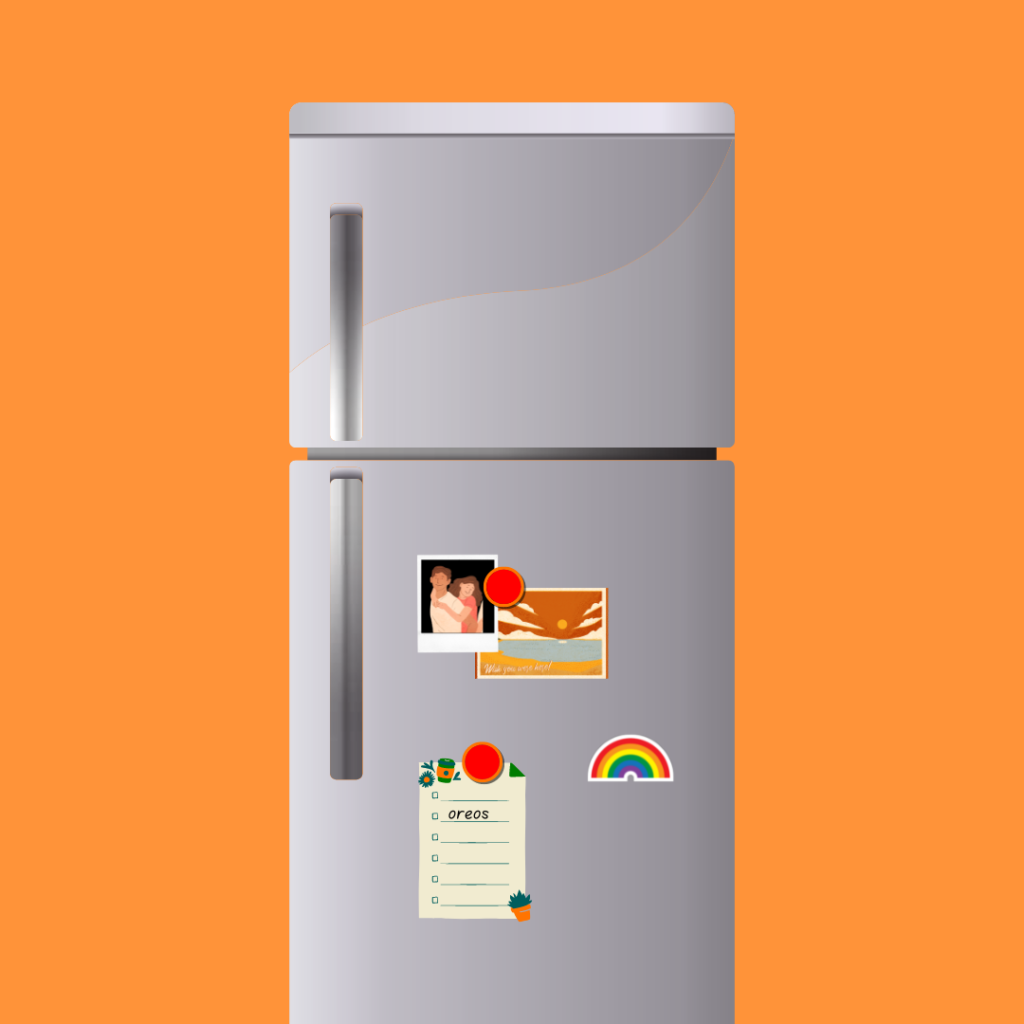
This tip does not mean to fill your home with rainbows and glitter (but does not discourage it either!). What I mean here is to put a few queer-friendly books on the shelf. (Books that honor LGBTQ+ American history, biographies of queer icons, etc.)
Place a few rainbows in subtle places, like fridge magnets. Maybe use June (Pride month) as a way to break out a special set of kitchen towels. You know, like you do for Halloween and Christmas. Let your family know that June is another holiday season worth celebrating even if you aren’t queer yourself.
You could take it a step further and have your family be active allies. Maybe you attend queer walks and rallies. Maybe you participate in fundraising efforts. This is a pretty active and positive role you’re taking on. It definitely tells your kids that queer people not only matter, but are valued by society. What a message to send a young queer person coming to terms with their identity.
Always act as if there is a queer person in the room
If you’re used to acting otherwise, this is going to be a pretty big adjustment. But believe me when I tell you, this is the most important tip so far. A queer kid is going to remember every single homophobic or transphobic thing you say and every homophobic/transphobic you let someone else say to you. Especially if you laugh along with a joke made in poor taste.
My dad and I are super chill now and he took my coming out very, very well. Unfortunately, I can never forget all the transphobic comments he and his friend spewed back and forth over a family dinner when Caitlyn Jenner came out. “What a joke,” I remember specifically. I’m no fan of Caitlyn Jenner, but I remember learning that day that trans identities are embarrassing, laughable, and grapples for attention.
If you wouldn’t say it to a queer person’s face, don’t say it at all. If you’d be embarrassed from a comment someone else made in front of a queer person, speak up. A queer child is going to notice everything you do or don’t do when it comes to tolerating homophobic and transphobic behaviors.
What to do when your child comes out to you
If you suspect your child might be queer, it’s a good idea to prepare for a coming-out. It’s a moment they’re going to remember for a long time, so doing your best to react appropriately is huge. Try your best to go easy on yourself. You don’t have all the answers, and you’re reading this post right now. You’re trying, and they’re going to know that.
Be understanding
The first thing you need to know about your child being queer is that they did not choose to be this way. They are choosing to share this information with you, and are trusting you to handle it well.
Often, coming to terms with our sexualities and gender identities is a pretty difficult process. It comes with unlearning what we thought we knew about ourselves. We might have to envision an entirely new future for ourselves. If we want to embrace our new selves, we might have to change our loved one’s perception of us. These are all very difficult, big things that queer kids are dealing with at a young ages.
So, how do you show you understand this? Be very affirming when they come out to you. Tell them you understand that this was a difficult thing to share. Vocalize that you are grateful they trusted you with this. Honor their bravery, their courage, their integrity, their authenticity by telling them they are these things. From stories I’ve heard and my own personal experience, it’s better to overdo it than underdo it.
Express only love–wait to deal with other emotions

In the moment, express only the love and pride you have. Say it! Out loud! You love them unconditionally. You are proud of them. You might think it goes without saying, but it does not. Remind them.
You might be dealing with some other emotions. That’s very normal and very okay. Society is still homophobic and still transphobic. A queer kid is at higher risk for things like anxiety and depression, bullying, discrimination, suicide, homicide, etc. It’s very normal for a parent to be worried about these things.
You might also be grieving a future that you envisioned for your child. Maybe you imagined them growing up and marrying a certain kind of person, having kids, etc. Or growing up in the gender they were assigned at birth. I don’t need to tell you that the future you pictured for you kid is not the future your kid is going to have–regardless of whether they’re queer or not. They’re not you.
It’s important to deal with all these emotions on your own. Do not burden your child with calming your worries. It’s simply not their job. Find someone you trust to help you work through difficult emotions and present a positive, happy, proud front to your child. Only let the love and pride show through.
Educate yourself
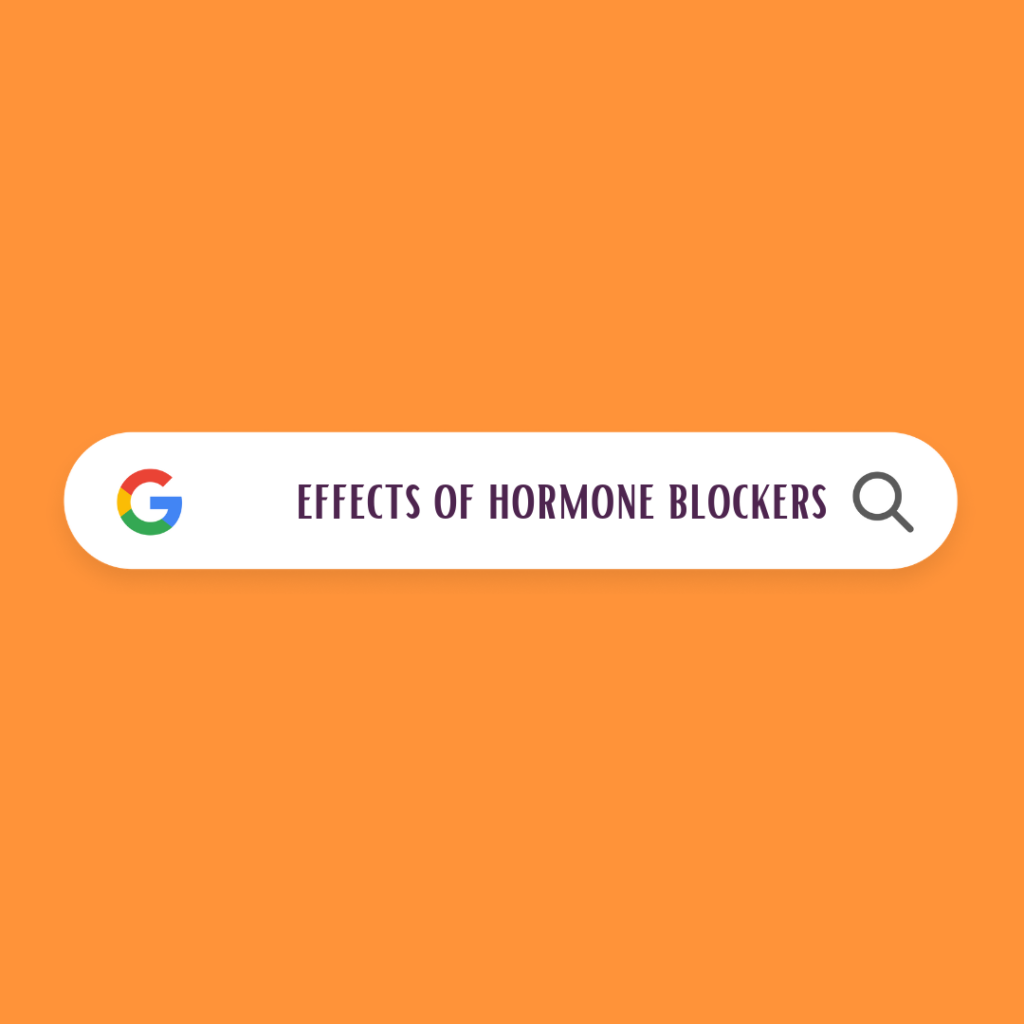
Understanding how to respect queer people (potentially your own child) is vital. You can tell them you love them all you want (a great first step) but to show them you learned about their community, learned how to respect their identity (and their people), is huge.
When you’re first familiarizing yourself with the LGBTQ+ community, it can be tricky. They have this reputation of being very sensitive. And honestly, that’s partly true. Think about this: we have learned we don’t belong in this world. (Often at a very young age.) That’s why we’re “sensitive.” By learning about your child’s identity and community, you’re essentially trying to say “I’m on board with you existing.”
Here are some ways to start the educating:
- Ask your child
- Ask Google! (Sometimes preferred)
- Join Facebook groups for parents of LGBTQ+ kids. (LED has a FB group!)
- Join a support group for parents of LGBTQ+
- Reach out to LGBTQ+ adult friends and see if they are comfortable answering questions
- Read our blog post on how to be a gender-affirming ally
- Read our blog post on mistakes that LGBTQ+ allies make and how to correct them
Be an ally and advocate to your LGBTQ+ child
Nothing says, “I accept who you are completely” like being an advocate for your queer kid, even when they aren’t around to see it.
Quick tips:
- If they’re transitioning, start using their new name and pronouns immediately. Practice using them on your own and with other family members so you are all on board as soon as possible.
- Be watchful for signs of bullying from peers.
- Celebrate Pride month and other queer-focused days. (Check out our blog post on how to celebrate Pride month.)
- Check in on them during tragedies and give them space to grieve and express emotions. (If anti-LGBTQ legislation passes or if news of a violent anti-LGBTQ hate crime breaks, like the Club Q shooting.)
- Have a chat with friends/family that are not showing your child’s identity respect. In extreme cases, this might mean choosing between your child and a person who refuses to respect them. You know what the right choice is.
Speaking up to other family members is hard. I know it’s a lot easier said than done. But the impact it makes on your queer kid is worth your discomfort.
I’ll never forget a time my grandpa had dinner with us. After we cleared the table, he chatted about a new church he was going to, where they were about to host a lesbian wedding. “I just don’t know about that.” I shifted in my seat. My mom said nothing. A few beats of silence passed, and I left the room before I heard anything else I couldn’t bear to hear. I wasn’t out to my grandpa at the time, but I was out to my mom. And the silence from her stung.
On the flip side, I’ll also never forget how I talked with my sister about how our brother never used my correct pronouns. It’d been half a year of him making (seemingly) no attempt at doing so after telling him I’ll be using they/them pronouns. Just days after this conversation with my sister, my brother used my pronouns for the first time. My sister’s never admitted to talking to him, but that timing isn’t coincidental. And it means a lot to me she did this without me witnessing it, for humiliation’s sake.
Bottom line, a queer kid is going to notice and remember the times you stood up for them and the times you stayed silent. “Keeping the peace” is going to be the wrong option more often than not. Letting anyone, but especially friends and family, disrespect your child’s identity is not a good way to show them you are on their side.
Connect your LGBTQ+ child to their community
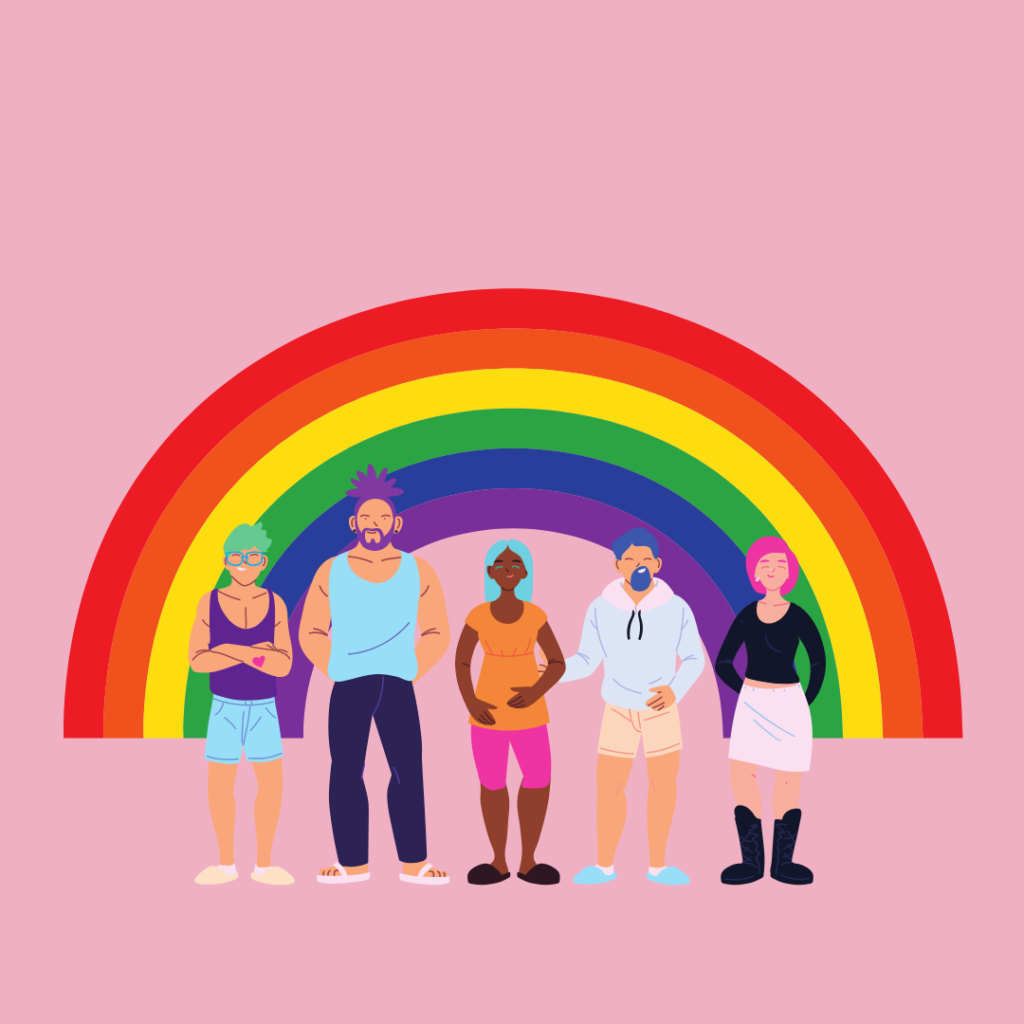
Another important way to be an ally for your LGBTQ+ kid is to make sure they have connection to their community. A lot of queer kids might not have in-person access to people like them, especially those who aren’t their peers. Ensuring that queer kids have some contact with their queer elders can be important.
I am 27, and I think I am just understanding how important connection to my community at a younger age could have been. I am writing this post soon after the shooting at Club Q. At first, I treated it as “just” another shooting. Meaning, I numbed my brain with work, social media, my cat. Until I read a poem someone wrote about one of the shooting victims. I broke down crying at my desk. I needed space to mourn this loss and explore its impact on me.
My local queer center held a vigil for the victims and let people speak, cry, and heal. None of my cisgender, heterosexual friends or family checked in with me. But my queer friends did, asking me if I wanted a ride to the vigil. We look out for each other when our straight counterparts may not even realize we need a little extra comfort, or how to provide it.
Making sure your LGBTQ+ child has access to community is vital. You doing your best for them is awesome, and they’ll remember and cherish it, but they still need to heal with their people and feel understood by the world. Being part of a community helps them see what’s possible for their futures, how to learn about their own histories, and how to access the things they need.
Establish an open dialogue on the subject
The first time you and your child have this conversation sets the scene for future conversations on the topic. So taking the time now to establish open dialogue is a great thing to do when your child comes out to you.
Don’t be afraid to ask direct questions to get clarifications. “Do your siblings know?” “Do you want me to share this information with others if they ask?” These are good questions.
Let your child know they can come to you about their queer identity and challenges, and that you’ll be ready to listen. Assure them that you’re ready to learn more about the LGBTQ+ community and challenges they face if this is not something already under your radar.
Being direct and asking clarifying questions can be hard, but it’ll be worth it. It minimizes the window for miscommunications and assumptions about how to address queer topics as they come up.
What NOT to do when your child comes out to you
Now that you have a stronger understanding of what to do when your child comes out, here’s a roundup of do-NOTs. Some of these might go without saying, but take it as a reminder.
Don’t try to change them
Conversion therapy is a big no. American Psychological Association, the American Medical Association, the American Psychiatric Association–they’re all on the same page about this. Conversion therapy is harmful.
If you’re reading this post, I’d assume you’re already on board with no conversion therapy. But “don’t try to change them” goes further than that. It’s important to be mindful of how you react and what kind of messages you’re sending. Avoid making your child feel guilty or afraid, subconsciously or otherwise.
Don’t make it about you
This is very related to the guilt or fear of the last tip. Parents make a lot of comments during a coming out (my own mother included!) like, “I wish I made it easier for you to tell me.” It’s not about you. Don’t make it about you. Don’t make it about your feelings.
Other things NOT to say:
- “I’m never going to have grandchildren.
- “I’m losing my son/daughter.” (If your child comes out as trans.)
- “Did I do something wrong to make you this way.” (Or any variation that implies the parent could have changed the outcome.)
Remember that it’s okay to have complicated feelings about your child’s coming out. You are adjusting to something new. You might be grieving for a future you envisioned. These feelings are normal and not bad by default. The important thing is to deal with these feelings on your own and to not make them your child’s problem.
Don’t dismiss or ignore it. Acknowledge and celebrate!

Saying “the wrong thing” can cause a freeze-up. It’s totally understandable. However, saying very little during such an important conversation can send the message that you’re not interested. Or worse, that you don’t like what’s being said.
Being on the queer kid side of this convo, I’d rather my parents say “the wrong thing” than say so little that I felt ignored. I understand my parents said very little about my coming out because they didn’t know how to talk about it without making too big a deal about it.
I don’t know if it’s a “grass is greener on the other side” situation, but I wish they’d made a big deal about it. It would’ve given a stronger sense of security and acceptance rather than feeling ignored or unimportant. Plus, coming out was a big deal to me. It took me two years to work up the nerve to do it.
Here are some things that I wish my parents did in the months following my coming out to them:
- Give me a card that congratulated me in some way
- Rainbow cake
- Offer to take me to my first Pride event the following June
- Ask how Pride was when I went without them
- Ask any questions about how I was feeling about my newfound identity at all
- Using any kind of rainbow/pride gear (keychain, sticker on water bottle, lanyard, coffee mug, bumper sticker, ANYTHING) or gifting any rainbow or pride gear to me
Here are some things that my sister did in the months-years following my lesbian coming out that I very much appreciated:
- Bought my girlfriend and I a set of “love wins” decorative pillows for Christmas.
- Made a joke about how I am a lesbian that can’t drive–how stereotypical. (Yes, it’s a real stereotype.) (Her making the joke said, “I know this about queer culture, and I think it’s funny too. And by using our love language of roasting each other, I’m using your queer identity to poke loving, light-hearded fun at you that tells you I understand and accept this part of you.”)
- Honestly just saying the word “lesbian” with other family members present felt like a huge deal at the time. Everyone else was treating it like a bad word.
- Offered to take me to Detroit Pride the following summer.
- Asked questions about the LGBTQ+ community when it wasn’t necessarily about me. It showed her interested without treating me like an encyclopedia. (“Who should and shouldn’t say the word “queer” and in what contexts?” “What are your thoughts on neopronouns and how should we use them?” Questions like this indicated she already knew some discussions happening within the LGBTQ+ community, but valued my opinion and wanted to learn more.)
Some things people did for me after my non-binary coming out that I appreciated:
- Switching to they/them pronouns after soft-launching gender-neutral pronouns by saying I use they/she pronouns.
- My sister bought me pronoun pins and bought a “she/her” set for herself.
- When I told my friend I was confused about what pronouns I want to use, she said, “I’ll use they/them pronouns for you from now on. Just let me know if that changes!” Having her make that declaration for me and keep the door open for adjustments was a huge, huge deal. It made embracing my new pronouns much easier.
- My sister’s boyfriend has never misgendered me. I don’t know how much practice went into using my new pronouns, but he switched immediately. I’d known him for over five years beforehand. I even lived with him for a year and he still never misgendered me. That is huge commitment and something I always remind myself of when I think using these pronouns is too much for other people.
Love your child when they come out to you
At the end of the day, your kid is your kid. They might shift and change, but so does everyone. Their queer identity is just a piece of their whole, and they chose to share it with you. If you lead with love and willingness to listen and grow alongside them, then you’re doing it right.

